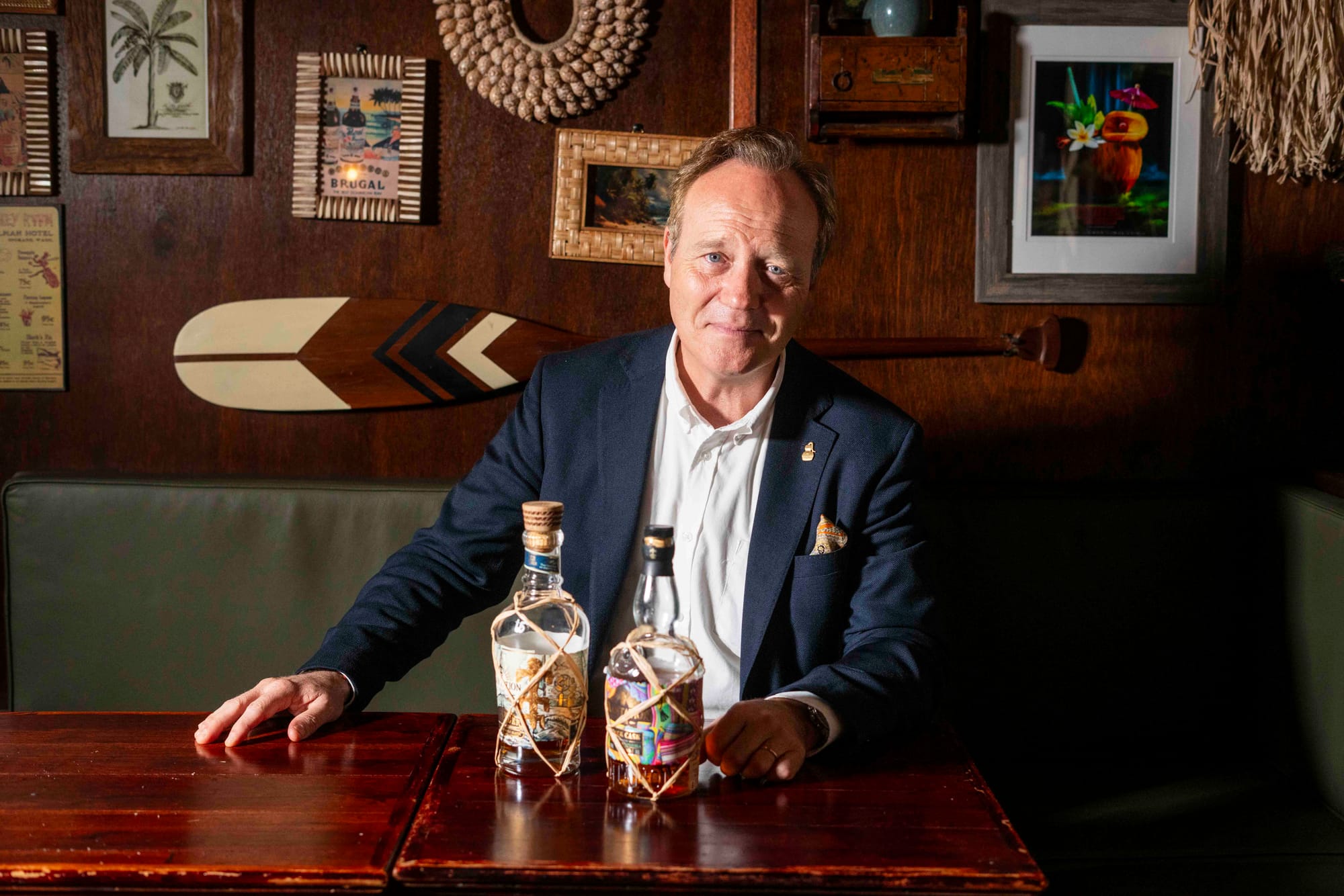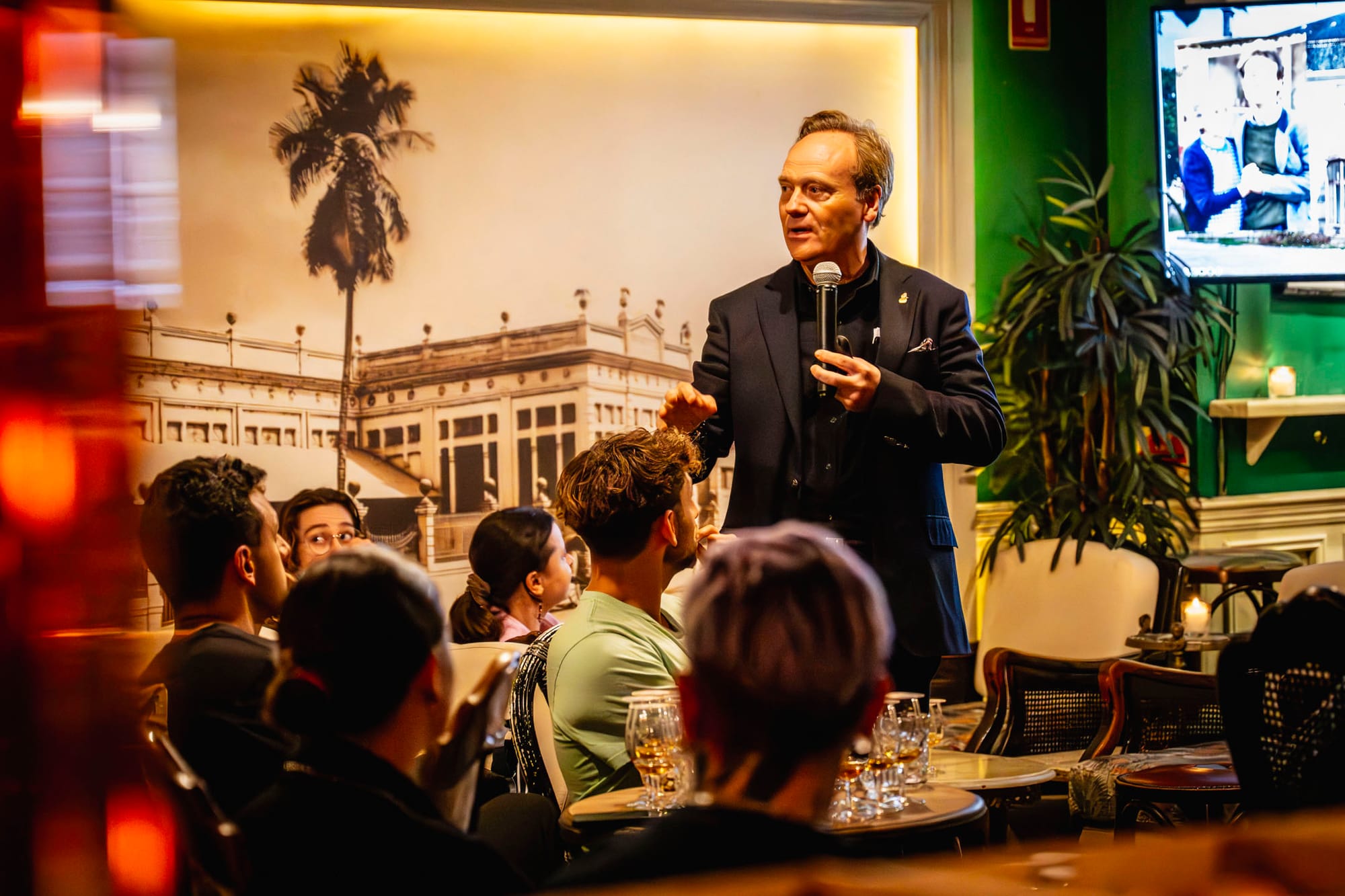Alexandre Gabriel on creativity, Planteray rums, GI, sugarcane, farming, loads more
“If you do something that’s creative, it owns you.”

This episode of Drinks At Work is presented by Planteray, distributed in Australia by Proof & Company — for more information contact your Proof & Company representative.
When you start getting a taste for good spirits, it doesn’t take long to start looking for bottles that are a little bit different. After all, distillation can be a characterless process — some distilleries are more akin to oil refineries, efficiently making pleasant alcohol. That’s fine enough. But the interest is really to be found in those distilleries with quirks and idiosyncrasies in their design and the way they make things — that’s what makes them stand apart. It makes them interesting.
Sometimes you can taste those idiosyncrasies, too; they’re what gives a spirit character. That’s a good thing — a feature not a bug. If everything was made the same, it’d take the appreciation out of drinking. It would make these products less special.
On today’s episode of Drinks At Work we’re talking to Alexandre Gabriel — someone who knows a thing or two about making special spirits. Alexandre is the owner and master blender at Maison Ferrand, the French company that makes Planteray rums (formerly known as Plantation rum), Citadelle gins, Ferrand Cognac, and more.
In the chat, you’ll hear just how restless his mind is, and the passion he has for spirits — which he calls “one of the last expressions of true folk art.”

He talks a bit, too, about how the product and marketing sides of their business relate — and it’s quite interesting. Instead of the marketing team identifying the need for a product in the marketplace, it seems — in Alexandre’s telling, anyway — that it’s the work that happens in the blending room or the distilleries that determines their new releases. “I love the creativity of it,” he says. “I always create 10 new products every month with the team; we only launch once in a while. Most companies, you got the marketing guys who are the crazy guys and then the production guys, they’re like, my God, they want us to do this?! Us, it is the other way around.”
This might go some way to explaining the diversity in the range of Planteray rums, from the staples like Stiggins’ Fancy Pineapple and the O.F.T.D, to blends from Fiji, Jamaica, Barbados and more.
We talk about the rums of course, but delve into topics of the moment like THE pluses and minuses of geographical indications (“They should promote a sense of transparency and honesty,” Alexandre says, “but there should be room for exploration, because things are not stuck in time,”); about the barrel tasting regime they have in place, and about how if you’re in a creative pursuit, it’s all you think about: “It’s a night and day commitment,” Alexandre says. “If you do something that’s creative, it owns you.”
It’s a great chat. Below, a few key takeaways, and get the full podcast through your podcast player of choice.
“The marketing guys would like to always tell you that one thing makes a whole difference.”
I asked Alexandre about the importance of sugarcane, and how much the particular variety has to do with the final product in the glass. And he says that, despite what you might see in marketing campaigns for spirits from companies around the world, it’s never really just one thing that makes the product great — it’s a simplification designed to make the spirit easier to sell.
“Super high quality is, and character is, much more complicated than that,” Alexandre says. “It’s the sum of many little things. Think of a house built of many bricks, you know, and somebody can say, we have that one brick that makes a great house. [No,] you need a lot of good quality bricks.”
“We’re a team of misfits on a mission.”
When Alexandre got started with Maison Ferrand, the company comprised a total of five people. “I’m proud to say 35 years later, three are still with me,” he says. “We love these guys.” And 35 years in, it’s these people that he works with that makes the job fulfilling.
It says something about the importance of culture and of your team, something great bar managers know as well. As Alexandre says, “that’s such a privilege to be with people you have so much respect for and to grow together.”
“You never own a farm. You tend a farm.”
“Humans are are tricked into believing they own land,” Alexandre says. Indeed, his farming roots seem to inform a great deal of what we talked about in this episode, and this idea about not owning a farm he applies to the distillery, too; Maison Ferrand has roots that stretch back 10 generations to the 1600s. “You tend to the farm and there’s always this very respectful approach to what you do to that land, because you’re handing it to somebody else,” he says. “And I think it’s the same with the distillery. Its history has soul.”
I think that long term kind of thinking — of situating what you do right now, in this moment, as just one point on a vast timeline — can help you make decisions that keep your brand, bar, work of art, or any creative endeavour, timeless.
Alexandre Gabriel talks about their creative process. Video: Boothby
This episode of Drinks At Work is presented by Planteray, distributed in Australia by Proof & Company — for more information contact your Proof & Company representative.

